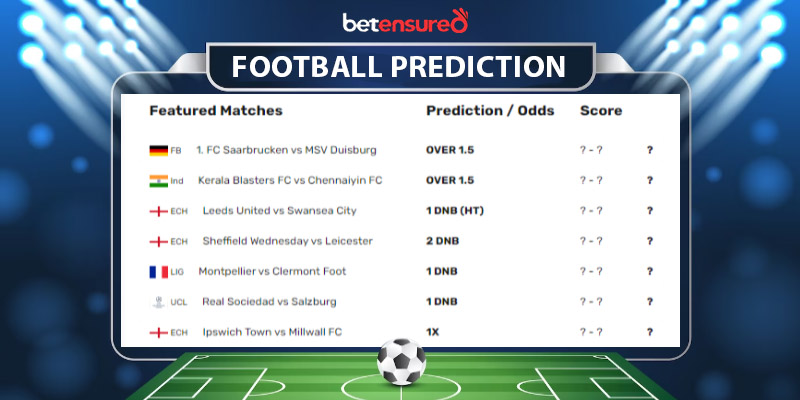Impact of Euro 2024 on European Football Culture
Soccer is considered to be the most popular sporting game in the world. In Europe, the sport has always been developed at a high level. Often teams from the Old World make it to the late stages of the World Cup, and the matches at the European Championships are watched by millions of fans of the game.
Like the World Cup, the European Championships are held every four years. Very soon Italy will have to defend the status of the reigning champion and the Old World will likely see a new winner of the championship. On our website, you can already now make your Euro 2024 predictions. However, it is no less interesting to watch the new teams and the development of European soccer culture after each Euro. Let’s take a closer look at this influence on the development of soccer in the host countries of this continental championship on the example of several recent Euros.
Euro 2004 and the development of Portugal
For those who plan to make Euro 2024 predictions, Portugal will always be one of the favorites. Before the home Euros, they were a top team, with a young and unknown Cristiano Ronaldo making his debut. The home Euros ended with the Portuguese finishing second and losing to “the most defensive champion team” Greece.
In 2004 as a whole, there was a big upswing in soccer in the country. At the time:
- Porto won the Champions League;
- many new soccer arenas appeared and are still in operation today;
- the country started to attract players not only from Portuguese-speaking countries (e.g. today, the Japanese forward Morita plays for Sporting);
- the general level of the Portuguese national team players has increased qualitatively (the national team players started to play in the best teams of the world).
For Portugal, the Euro has become an impetus for the development of soccer in the country, although the national team has always been in high positions.
Euro 2008 and the impact on Switzerland and Austria
In this case, in the first place, we should talk about the Austrian national team. At the time of the home Euro, even the fans did not believe in their team. There were even small protests with a demand to deprive the team of the status of a participant because it was weaker than the opponents.
Indeed, at that time the national team was represented mainly by players from the local championship. But thanks to the holding of the Euro in the country there was a popularization of soccer. Today in Austria:
- many world-class players (Alaba, Sabitzer, Arnautovic, and others);
- there are financial injections (development of RB Salzburg);
- 4 top-class stadiums have appeared;
- many additional soccer schools opened.
Things were a bit better in Switzerland because at least the Yakin brothers and Alexander Fry were known to the fans. But after the Euros, many new stars emerged, whose names are still known today. Yes, Switzerland was not the favorite at the Euros, but it is a good team with an overall above-average level.
Euro 2012 and the development of soccer in Poland and Ukraine
The situation was similar to the previous pair of hosts. Poland had young stars in the form of a trio from Dortmund (Piszczek, Blaszczykowski, Lewandowski) and goalkeeper Wojciech Szczęsny. However, they lacked experience. After the Euros, they felt more confident. Thanks to this tournament:
- scouts started to pay more attention to Polish players;
- top players in every lineup;
- the Polish Football Federation has significantly changed its approach to the training of players and support staff;
- the number of experienced stewards has increased significantly;
- quality soccer infrastructure appeared.
In Ukraine, the situation was even more complicated. The national team had never played at the Euros (though after the domestic championship, it did not miss these championships). It was the last major tournament where Andriy Shevchenko could play. He was remembered for two goals, and in Ukraine, the name of Hungarian referee Viktor Kaszszai became a noun (he did not count a clean goal against England, which did not allow the Ukrainians to leave the group).
After Euro 2012, the active club soccer boom began, because:
- new functionaries came;
- top teams appeared (in addition to Dynamo Kyiv and Shakhtar Donetsk, Metalist Kharkiv, and Dnipro also actively played in European cups);
- quality legionnaires, including players from the Brazilian national team, began to arrive in the country;
- many top stars played in Ukraine after the Euros (mainly Shakhtar’s Brazilians);
- quality Ukrainian players started to appear (it all started with Yarmolenko and Konoplyanka).
Unfortunately, after 2 years the Ukrainian championship went into decline, which continues to this day. However the Ukrainian national team continues to participate in top tournaments, and the Olympic team will debut at the Olympic Games 2024 for the first time.
Euro 2020 as a sign of a united Europe
Euro 2016 was held in France and this country was always among the top contenders to win. And Euro 2020 was truly revolutionary because:
- 11 countries hosted the tournament at once, one city in each country;
- there was no place for the host country;
- the VAR system was used for the first time.
Such a tournament was organized for the first time as an anniversary of the first European Championship. However, this tournament allowed us to see many new stars, goalkeeper Donarumma was recognized as the best player of the tournament. It was also possibly the last peak tournament for Cristiano Ronaldo.
This tournament showed that the whole of Europe is ready for major competitions. Today, many countries have top stadiums and the ability to host this format of tournaments.
Conclusion
The upcoming Euro will reveal new stars and allow us to discover new stars. At least 2 national teams will be debutants (Serbia and Georgia) and both have interesting players. The undisputed favorite will be Germany and other tops of European soccer. But many fans to make Euro 2024 predictions may be surprised at first glance by the middleweights (Ukraine, Romania, Hungary, Switzerland). It is important to realize that every tournament brings new stars. Perhaps they will appear in the German national team itself, especially after Bayer’s victory in the national championship.



